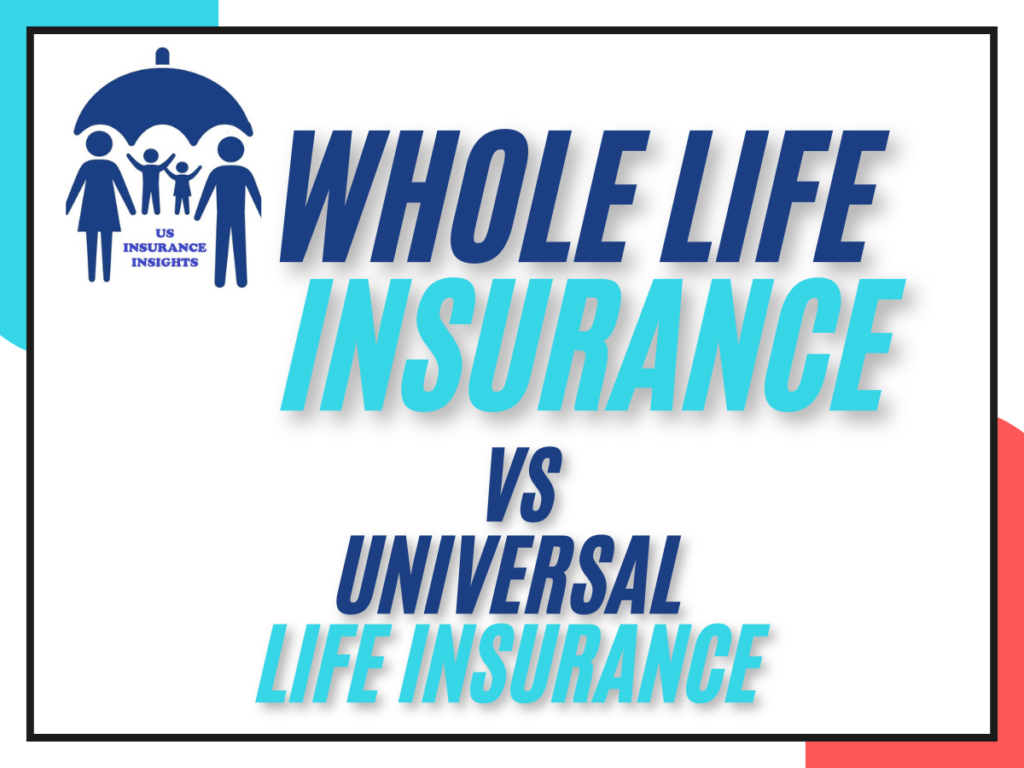Whole Life Insurance vs. Universal Life Insurance With regards to life coverage, choosing Entire Extra security and General Life coverage can feel like an overwhelming undertaking. Both offer lifelong coverage and cash value accumulation, but they differ in significant ways. In this article, we’ll break down these options step-by-step to help you determine which might be the best fit for you or your family. Let’s dive in!
What is Whole Life Insurance? (Whole Life Insurance vs. Universal Life Insurance)
Entire Disaster protection is a sort of long-lasting extra security that gives inclusion to your whole life, as long as you keep on paying the charges. It accompanies an investment funds part, known as “cash esteem,” that develops over the long run.
Key Features of Whole Life Insurance:(Whole Life Insurance vs. Universal Life Insurance)
Reliable Demise Advantage:(Whole Life Insurance vs. Universal Life Insurance)
Your recipients will get a proper sum when you die.
Fixed Expenses:(Whole Life Insurance vs. Universal Life Insurance)
You pay similar sum consistently, a large number of years.
Cash Value Growth:(Whole Life Insurance vs. Universal Life Insurance)
A portion of your premiums goes into a savings account that grows at a guaranteed rate.
Dividends: (Whole Life Insurance vs. Universal Life Insurance)
Some policies offer dividends that can be used to reduce premiums, buy additional coverage, or be taken as cash.
Anecdote:
Let’s take Jane, for instance. She bought a Whole Life Insurance policy at 30 years old. By the time she turned 60, the cash value had grown enough for her to borrow against it for her daughter’s college tuition.
What is Universal Life Insurance?
Widespread Life coverage is one more kind of long-lasting disaster protection, however it offers greater adaptability.
You can adjust your premiums and death benefit over time to fit your needs.
Key Features of Universal Life Insurance:
Flexible Premiums: (Whole-Life-Insurance-VS-Universal-Life-Insurance)
You can pay more or less within certain limits, or even skip payments if there’s enough cash value.
Flexible Demise Advantage:(Whole-Life-Insurance-VS-Universal-Life-Insurance)
You can increment or reduction the inclusion sum.
Cash Value Accumulation:
The cash value grows based on market interest rates, which means it can fluctuate.
Potential for Higher Growth:
Some policies are tied to stock indexes, allowing for more significant cash value growth (but also more risk).
Anecdote:
Meet John. He bought a Universal Life Insurance policy when he was 40. At 55, he decided to lower his death benefit and reduce his premiums to accommodate his semi-retirement lifestyle.
Key Contrasts Between Entire Life and All inclusive Extra security
Feature
Whole Life Insurance
Universal Life Insurance
Premiums
Fixed
Flexible
Death Benefit
Fixed
Adjustable
Cash Value Growth
Guaranteed
Variable (tied to interest rates or indexes)
Risk
Low
Moderate to High
Ideal For
People who want stability and predictability
People who want flexibility and potential growth
Step by step instructions to Pick either Entire Life and All inclusive Extra security
The following are a maneuvers toward help you with making an informed choice:
1. Assess Your Financial Goals
Whole Life Insurance is ideal if you value stability and are looking for guaranteed cash value growth and death benefits.
Universal Life Insurance may be better if you want more control over premiums and cash value growth.
2. Evaluate Your Budget
Fixed premiums in Whole Life Insurance can be easier to plan for.
If you need flexibility due to fluctuating income, Universal Life Insurance might be a better choice.
3. Consider Your Risk Tolerance
If you prefer lower risk, Whole Life Insurance is a safer bet.
If you’re open to some risk for potentially higher rewards, go for Universal Life Insurance.
4. Think About Your Legacy
Whole Life Insurance ensures a consistent legacy for your beneficiaries.
Universal Life Insurance allows for adjustments as your life situation changes.
Pros and Cons
Pros of Whole Life Insurance
Lifetime coverage with predictable premiums.
Cash esteem develops consistently and can be acquired against.
Often comes with dividends.
Cons of Whole Life Insurance
Higher premiums compared to term insurance.
Less flexibility compared to universal policies.
Pros of Universal Life Insurance
Flexibility in premiums and death benefits.
Potential for higher cash value growth.
Customizable to fit your financial needs.
Cons of Universal Life Insurance
Cash value depends on market performance, which involves risk.
Complex to manage due to variable components.
Final Thoughts
Picking either Entire Extra security and General Life coverage reduces to your own necessities, objectives, and hazard resistance. Take your time to evaluate what you’re looking for in a life insurance policy. Don’t hesitate to consult with a financial advisor who can provide tailored advice.
If you want to explore more about these options, here are some helpful resources:
Understanding Whole Life Insurance
Guide to Universal Life Insurance
Remember, life insurance isn’t just about planning for the end; it’s about securing a future for your loved ones and creating financial flexibility for yourself.

